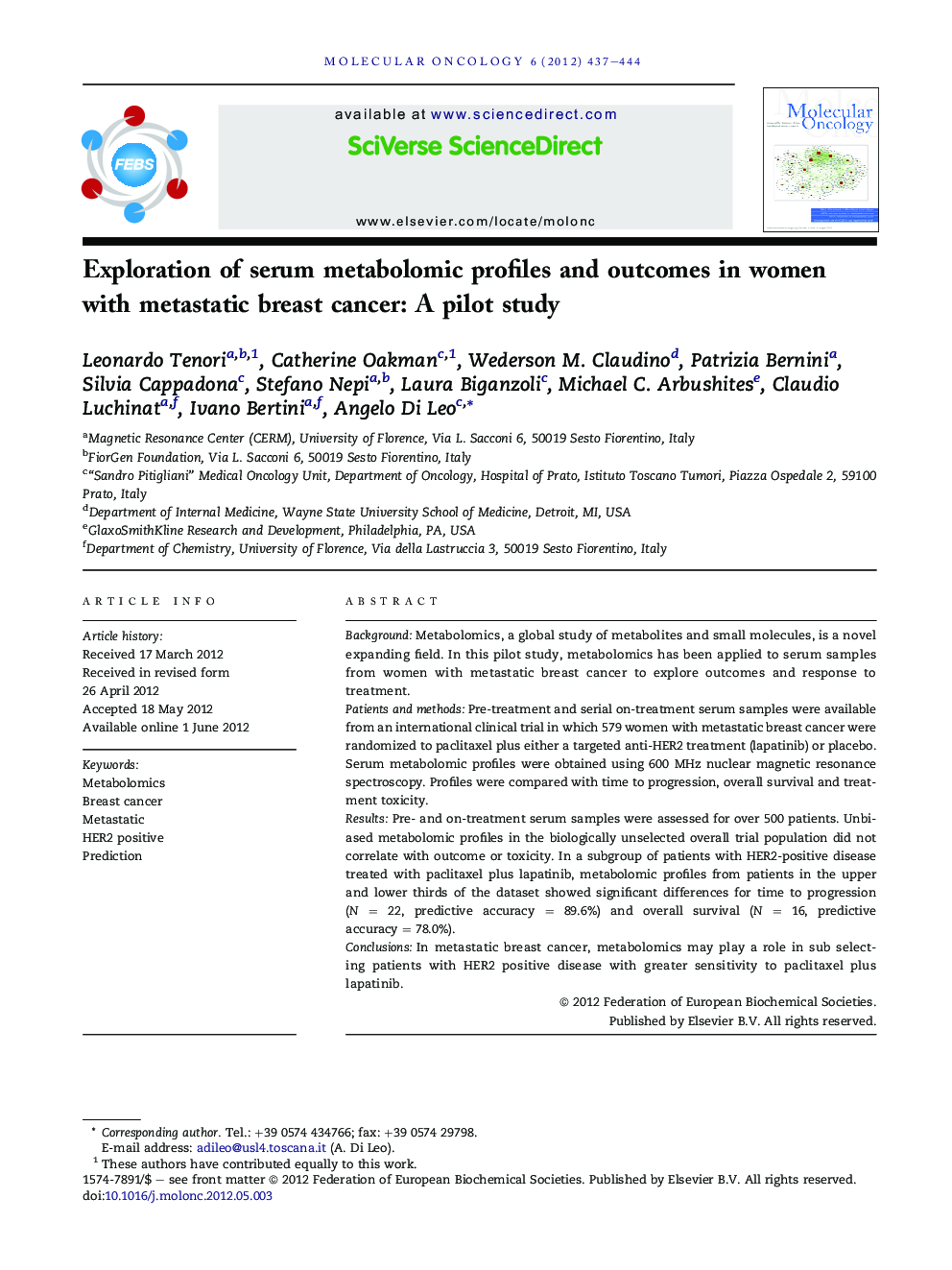| Article ID | Journal | Published Year | Pages | File Type |
|---|---|---|---|---|
| 2145758 | Molecular Oncology | 2012 | 8 Pages |
BackgroundMetabolomics, a global study of metabolites and small molecules, is a novel expanding field. In this pilot study, metabolomics has been applied to serum samples from women with metastatic breast cancer to explore outcomes and response to treatment.Patients and methodsPre-treatment and serial on-treatment serum samples were available from an international clinical trial in which 579 women with metastatic breast cancer were randomized to paclitaxel plus either a targeted anti-HER2 treatment (lapatinib) or placebo. Serum metabolomic profiles were obtained using 600 MHz nuclear magnetic resonance spectroscopy. Profiles were compared with time to progression, overall survival and treatment toxicity.ResultsPre- and on-treatment serum samples were assessed for over 500 patients. Unbiased metabolomic profiles in the biologically unselected overall trial population did not correlate with outcome or toxicity. In a subgroup of patients with HER2-positive disease treated with paclitaxel plus lapatinib, metabolomic profiles from patients in the upper and lower thirds of the dataset showed significant differences for time to progression (N = 22, predictive accuracy = 89.6%) and overall survival (N = 16, predictive accuracy = 78.0%).ConclusionsIn metastatic breast cancer, metabolomics may play a role in sub selecting patients with HER2 positive disease with greater sensitivity to paclitaxel plus lapatinib.
► In advanced breast cancer, differential serum NMR metabolite profiles exist. ► In HER2+ breast cancer, ‘on treatment’ serum profiles correlate with outcome. ► Metabolomics may identify HER2+ patients with greater sensitivity to treatment.
